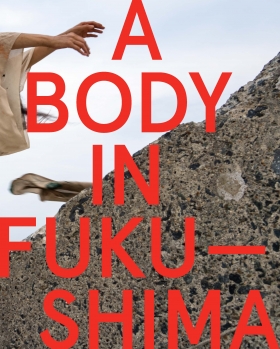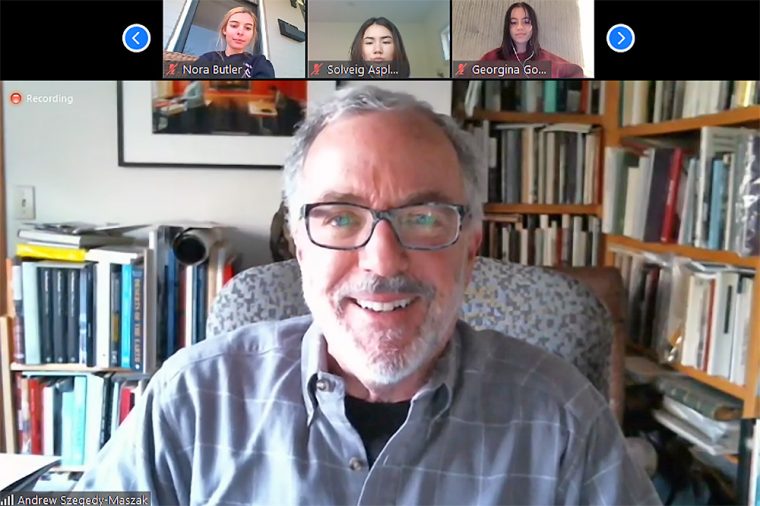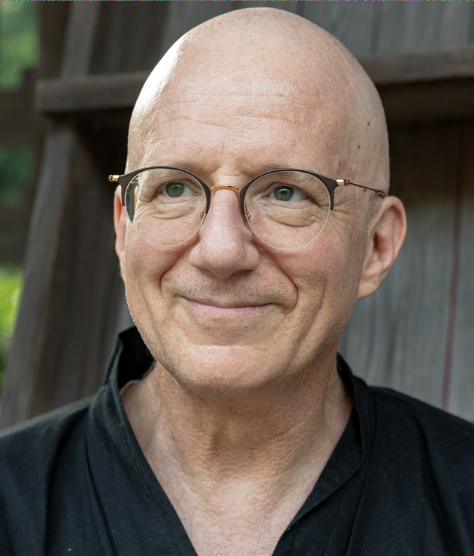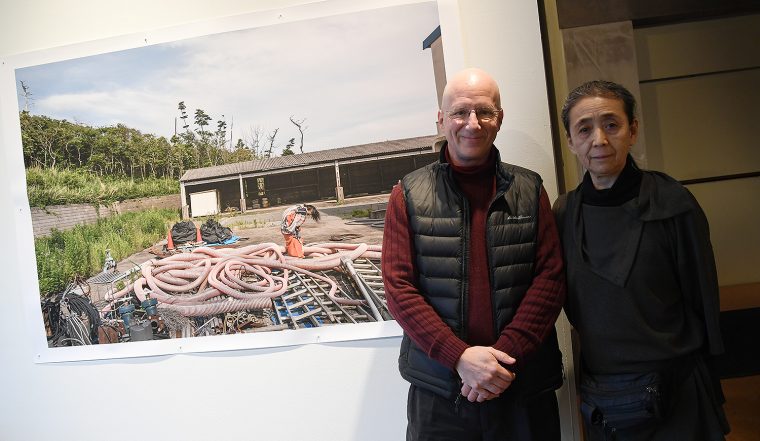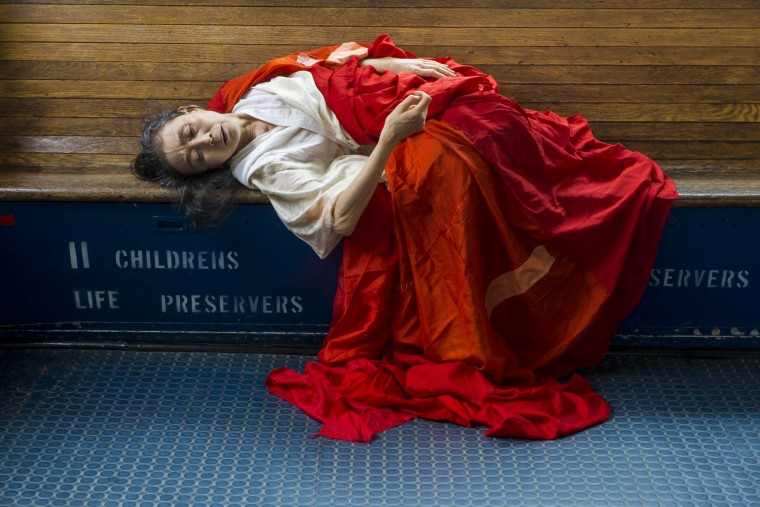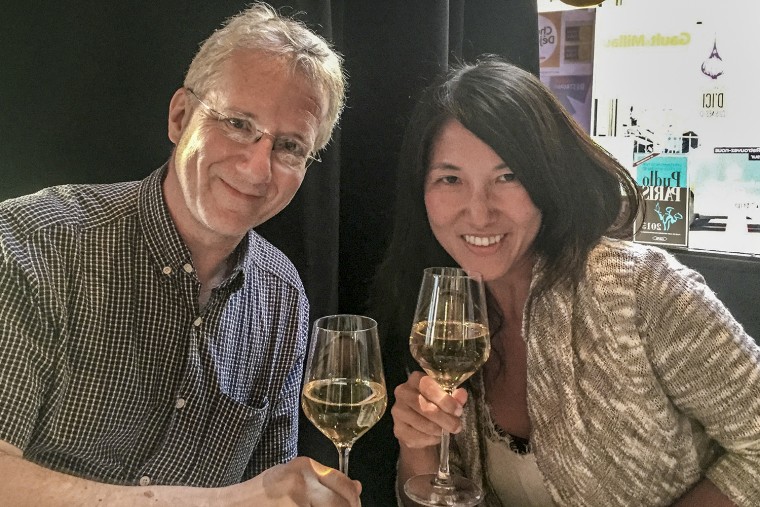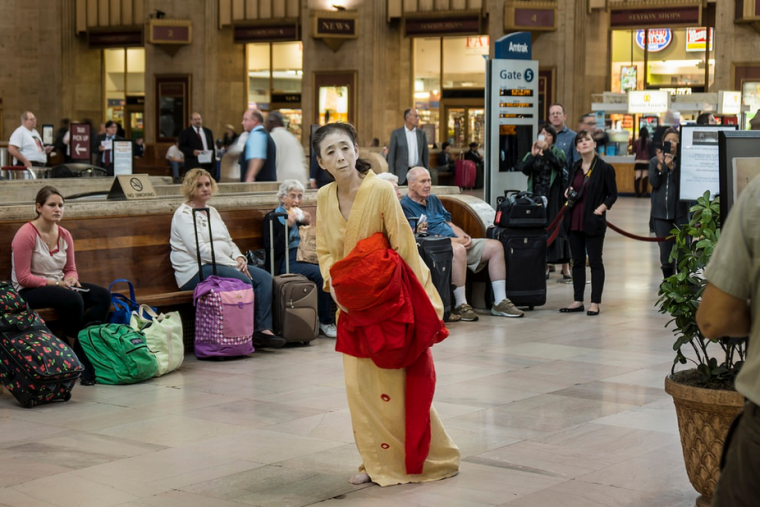A new book written by two Wesleyan faculty explores the experience of two travelers in the land destroyed by the Fukushima Daiichi nuclear disaster in 2011. William Johnston, John E. Andrus Professor of History, and Eiko Otake, visiting artist in dance, are the co-authors of A Body in Fukushima, published June 1 by Wesleyan University Press. Johnston, a historian and photographer, accompanied Japanese-born performer and dancer Otake on five explorations across Fukushima, creating 200 photographs that document the irradiated landscape, accentuated by Eiko's poses depicting both the sorrow and dignity of the land. Johnston elaborated on the process of creating…
When President Michael Roth announced in mid-March that Wesleyan would suspend in-person classes for the remainder of the spring semester because of the increasing threat of the COVID-19 pandemic, faculty had less than two weeks to prepare their courses for distance learning before classes resumed after spring break. Trying to recreate the immersive Wesleyan classroom experience in a digital format presented a variety of challenges, particularly for faculty who had never taught online previously. It’s become clear over the last month that faculty have been able to rise to those challenges, and the Wesleyan Student Assembly (WSA) formally recognized their…
Wesleyan in the News 1. CNN: "How Coronavirus Has Reshaped Democratic Plans for 2020" This article on how Democrats are politicizing the government's response to the coronavirus crisis features research by the Wesleyan Media Project, which found that this past month has seen a huge drop in campaign advertising overall. "The messaging and the attacks that we've seen on [coronavirus] do feel louder ... in part because there are fewer messages overall," said Erika Franklin Fowler, associate professor of government, co-director of the Wesleyan Media Project. She notes that health care was emerging as a top issue in 2020 advertising…
William Johnston, the John E. Andrus Professor of History, is a historian who studies disease and medicine, with expertise in epidemics of infectious diseases. In this Q&A, Johnston discusses the novel coronavirus outbreak and what can be learned from the past. Q: How and when did you start studying the history of disease and medicine? A: About 30 years ago, I wrote my dissertation on the subject, which became my first book, The Modern Epidemic: A History of Tuberculosis in Japan. Around that time, people were starting to consider epidemics of infectious diseases a thing of the past that were…
(more…)
Building off research she did for her work "Body in Places" at Wesleyan in fall 2015, Visiting Instructor in Dance Eiko Otake will present a major platform at Danspace Project in New York City on March 11. The free talks include those by Wesleyan faculty members William Johnson, professor of history, professor of East Asian Studies, professor of science in society, professor of environmental studies, and Katja Kolcio, associate professor of dance, associate professor of environmental studies. March 11 marks the fifth anniversary of the earthquake, tsunami and nuclear disaster in Fukushima, Japan. A photo collective by Eiko and Johnston will be…
Seventy years later, it is widely believed that President Harry S. Truman made a decision to authorize the bombings of Hiroshima and Nagasaki. The truth, writes William Johnston in the Hartford Courant, is that he never did, at least not explicitly. Johnston, professor of history, professor of East Asian Studies, examines in an op-ed how history has been rewritten surrounding the bombings. In fact, Truman's first explicit decision about atomic bombs was to later order that their further use be stopped without his "express authority." But in summer 1946, Johnston explains, the need arose to write an alternative narrative, as the bomb's…
Two Wesleyan faculty members presented talks at the 14th International Conference on the History of Science in East Asia, held in Paris, July 6-10. On July 7, Miri Nakamura, associate professor of East Asian studies, read from a paper titled "Atomic Maids," which focused on the role of Japanese housekeepers in mystery novels that were indirect criticisms of nuclear issues. On July 9, Bill Johnston, professor of history, professor of East Asian studies, professor of Science in Society, professor of environmental studies, spoke about the changing role of the environment in ideas about disease causation in 19th century Japan. The conference is held every four…
Japanese-born choreographer/dancer Eiko Otake, visiting instructor in dance, recently accepted a three-year appointment in the Dance Department and College of East Asian Studies. Otake has a 13-year performance history at the Center for the Arts, which began with a three-hour performance of "Offering," Eiko & Koma’s response to 9/11, in the Ezra and Cecile Zilkha Gallery. Since then, Otake has visited campus many times as a Center for Creative Research Artist-in-Residence, and then as a Wesleyan University Creative Campus Fellow to teach, to offer workshops, to curate events, and to give lectures. Since 1972, Otake has collaborated with Takashi Koma…
This issue, we ask “5 Questions” of William Johnston, professor of history, professor of science in society, professor of East Asian Studies. One of his areas of specialty is the history of disease and epidemics. Q: How did you become interested in the history of diseases, and more specifically, flu outbreaks? A: While in graduate school I examined a number of different fields of history, but was drawn to the history of medicine in Japan because it was in that field that the Japanese first absorbed European scientific ideas and methods. My advisor suggested that I take courses in the…


